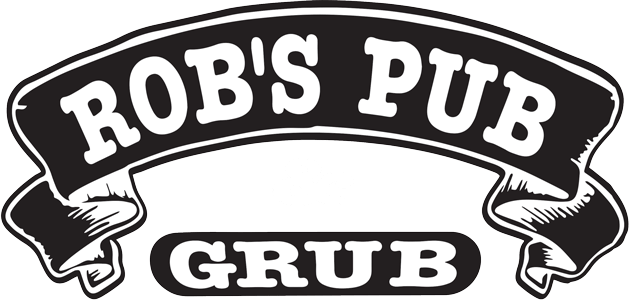Overview Of Alcohol And Muscle Relaxers Interaction
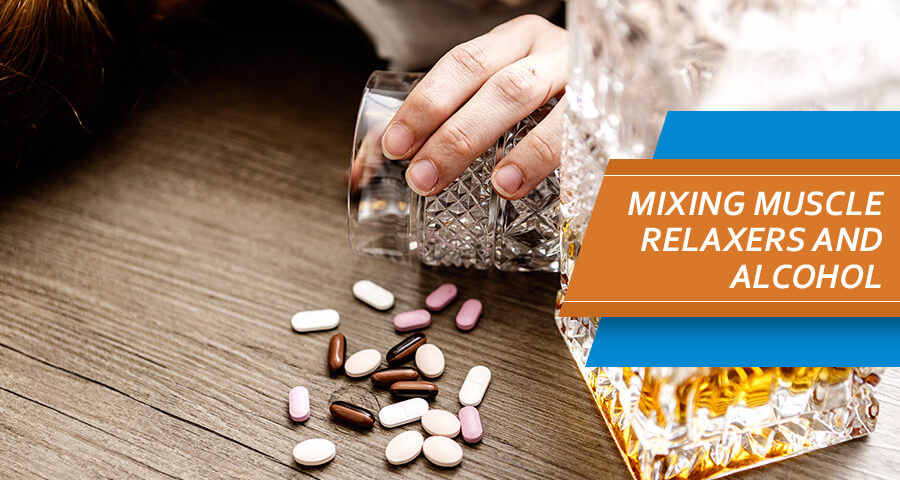
When alcohol and muscle relaxers are taken together, the interaction can have adverse effects on the body. Alcohol is a depressant that can enhance the sedative effects of muscle relaxers, leading to increased drowsiness, dizziness, and impaired coordination. This can be particularly dangerous, as the combination can impair motor skills and judgment, increasing the risk of accidents and falls. Additionally, both alcohol and muscle relaxers can have a negative impact on the central nervous system, further intensifying their effects when combined. It is important to understand the potential risks of mixing alcohol and muscle relaxers and to exercise caution when using these substances together.
Overview Of Alcohol And Muscle Relaxers
Alcohol and muscle relaxers are both substances that can affect the central nervous system. Alcohol is a depressant that can impair cognitive function and coordination, while muscle relaxers are medications that can help relieve muscle spasms and pain. When taken together, the sedative effects of muscle relaxers can be intensified by alcohol, leading to increased drowsiness, dizziness, and impaired motor skills. This combination can be particularly dangerous, as it can increase the risk of accidents and falls. It is important to understand the potential risks of mixing alcohol and muscle relaxers and to use caution when consuming them together.
Potential Risks And Side Effects
Taking alcohol and muscle relaxers together can have various potential risks and side effects. Mixing these substances can intensify the sedative effects of muscle relaxers, leading to increased drowsiness, dizziness, and impaired motor skills. This combination can significantly impair cognitive function and coordination, increasing the risk of accidents and falls. Additionally, the combination of alcohol and muscle relaxers can also lead to respiratory depression, which is a potentially life-threatening condition. It is crucial to understand these risks and exercise caution when consuming alcohol and muscle relaxers together to ensure personal safety.
Common Types Of Muscle Relaxers

There are several common types of muscle relaxers that are prescribed by healthcare professionals. Some of the most frequently prescribed muscle relaxers include:
- Carisoprodol (Soma): This muscle relaxer is used to relieve muscle spasms and discomfort caused by strains, sprains, and other muscle injuries.
- Cyclobenzaprine (Flexeril): Often prescribed for short-term relief of muscle spasms associated with acute musculoskeletal conditions, such as back pain.
- Diazepam (Valium): While primarily used for its anti-anxiety properties, diazepam also has muscle-relaxing effects and may be prescribed to treat muscle spasms or tension.
- Methocarbamol (Robaxin): This muscle relaxer is used to treat muscle spasms and pain caused by musculoskeletal conditions.
It’s important to note that the specific type of muscle relaxer prescribed will depend on the individual’s condition and healthcare provider’s evaluation. It is essential to follow the prescribed dosage and consult with a healthcare professional before combining muscle relaxers with alcohol.
Different Types Of Muscle Relaxers
Muscle relaxers, also known as skeletal muscle relaxants, come in various forms and have different mechanisms of action. Some common types of muscle relaxers include:
- Carisoprodol (Soma): Used to relieve muscle spasms and discomfort caused by strains, sprains, and other muscle injuries.
- Cyclobenzaprine (Flexeril): Often prescribed for short-term relief of muscle spasms associated with acute musculoskeletal conditions, such as back pain.
- Diazepam (Valium): Primarily used for its anti-anxiety properties, diazepam also has muscle-relaxing effects and may be prescribed to treat muscle spasms or tension.
- Methocarbamol (Robaxin): Used to treat muscle spasms and pain caused by musculoskeletal conditions.
These muscle relaxers work by reducing muscle contractions and relieving muscle pain. It is important to consult with a healthcare professional for proper usage and dosage instructions.
How They Interact With Alcohol
Muscle relaxers interact with alcohol by intensifying their effects on the body. Both alcohol and muscle relaxers are central nervous system depressants, which means they slow down brain activity and can cause drowsiness, dizziness, and impaired coordination. When combined, the sedative effects of alcohol and muscle relaxers can be magnified, leading to increased sedation and impaired motor function. This can be dangerous and increase the risk of accidents, falls, and other adverse events. It is important to avoid consuming alcohol while taking muscle relaxers and to follow the prescribed dosage and usage instructions provided by a healthcare professional.
Effects Of Mixing Alcohol And Muscle Relaxers

Mixing alcohol and muscle relaxers can have various effects on the body. When combined, the sedative effects of both substances are intensified, leading to increased drowsiness, dizziness, and impaired coordination. This can result in a higher risk of accidents and falls. Additionally, mixing alcohol and muscle relaxers can also lead to slowed breathing and heart rate, as both substances depress the central nervous system. Long-term effects of this combination can include liver and kidney damage, as well as cognitive impairments and digestive issues. It is crucial to avoid mixing alcohol and muscle relaxers to maintain one’s health and safety.
Short-term Effects
When alcohol and muscle relaxers are mixed, the short-term effects can be intensified. These effects include increased drowsiness, dizziness, and impaired coordination. Mixing alcohol and muscle relaxers can make it extremely dangerous to operate machinery or drive a car. Additionally, nausea can occur, leading to discomfort and potential vomiting. The sedative properties of both substances can also lead to a higher risk of accidents and falls. It is important to avoid mixing alcohol and muscle relaxers to prevent these short-term effects and ensure personal safety. Seek medical advice if you experience any concerning symptoms.
Long-term Effects
Long-term use of alcohol and muscle relaxers can have significant consequences on both physical and mental health. Chronic consumption of these substances can lead to the development of addiction and dependency. Prolonged use can also result in liver damage, cardiovascular problems, gastrointestinal issues, and increased risk of accidents and injuries. Additionally, the combination of alcohol and muscle relaxers can exacerbate mental health conditions such as depression, anxiety, and cognitive impairments. It is crucial to recognize the potential long-term effects and seek professional help to address any substance abuse or addiction issues. Seek medical advice for proper guidance and support.
Dangers Of Combined Use
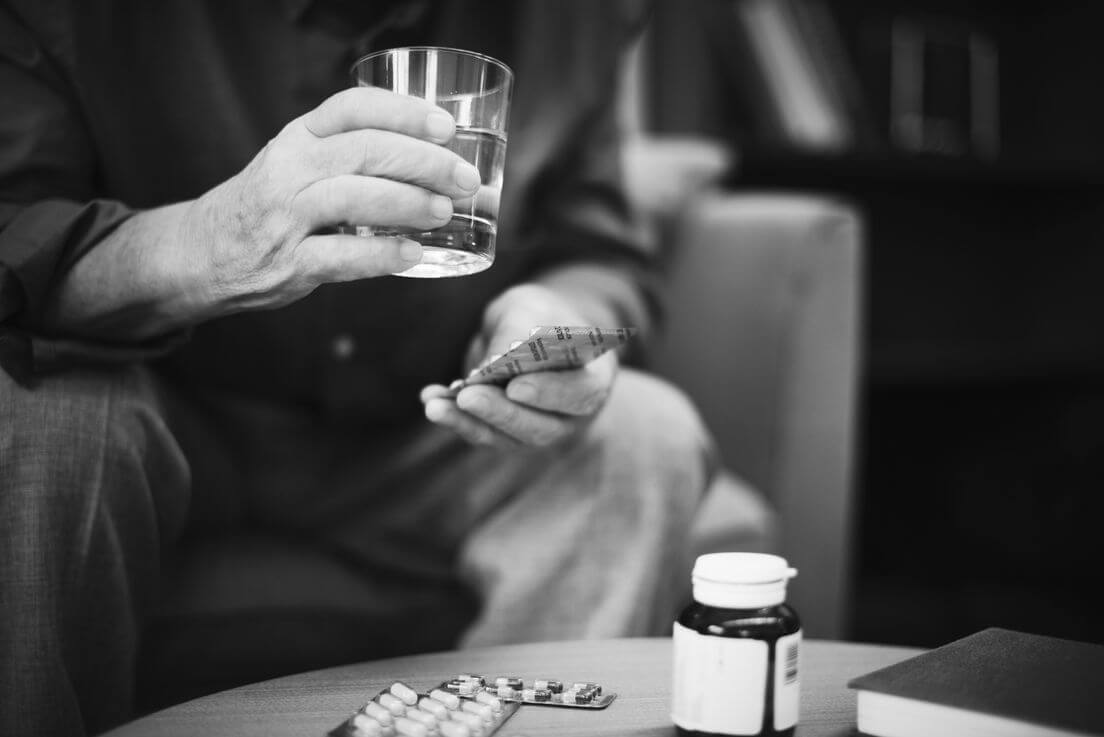
Combining alcohol and muscle relaxers can pose significant dangers to individuals. The simultaneous use of these substances can result in an increased risk of overdose. Both alcohol and muscle relaxers depress the central nervous system, leading to respiratory depression and sedation. This combination can severely impair cognitive function, coordination, and judgment, heightening the risk of accidents and injuries. Moreover, the interaction between alcohol and muscle relaxers can exacerbate the side effects of each substance, including drowsiness, dizziness, and impaired motor skills. It is crucial to understand the dangers of combined use and seek professional help to avoid potential harm and complications.
Increased Risk Of Overdose
Combining alcohol and muscle relaxers significantly increases the risk of overdose. Both substances are central nervous system depressants, meaning they slow down breathing and decrease heart rate. When consumed together, they can intensify these effects, leading to respiratory depression and sedation. This can be life-threatening and require immediate medical attention. The symptoms of an overdose may include extreme drowsiness, confusion, slowed breathing, or unconsciousness. It is essential to understand the dangers of combining alcohol and muscle relaxers and seek professional help to avoid potential overdose and its severe consequences.
Impact On The Central Nervous System
When alcohol and muscle relaxers are combined, their effects on the central nervous system are compounded. Both substances act as depressants, slowing down brain activity and inhibiting the transmission of nerve signals. This can lead to increased sedation, decreased muscle control, and impaired coordination. The central nervous system is responsible for essential functions such as breathing and heart rate regulation, and the combination of alcohol and muscle relaxers can further depress these functions, potentially leading to serious health risks. It is crucial to understand and avoid the impact of combining alcohol and muscle relaxers to ensure the safety and well-being of individuals using these substances.
Tips For Safe Consumption
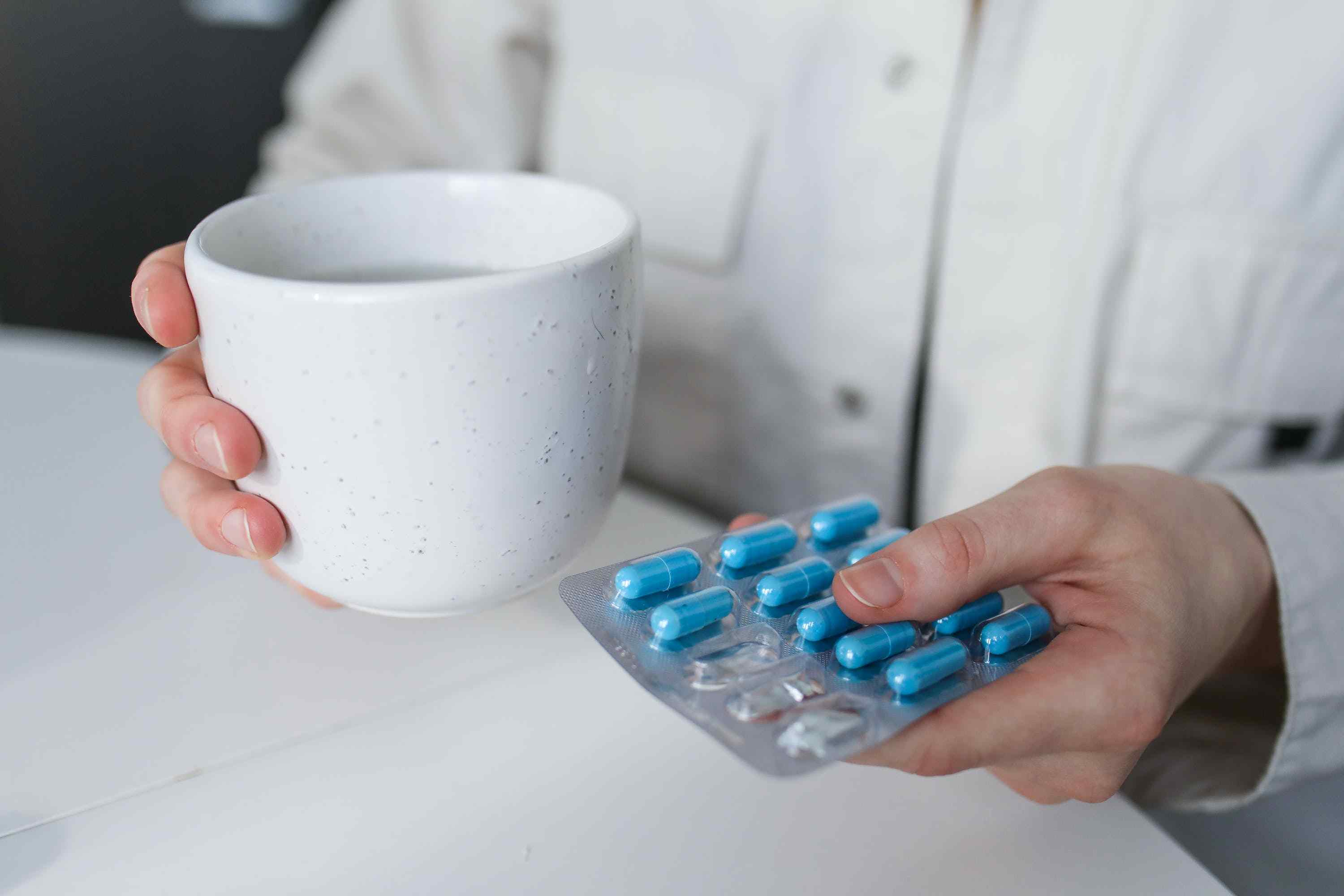
When it comes to consuming alcohol and muscle relaxers, there are several important tips to keep in mind for a safe experience.
- Follow the prescribed dosage: Always take muscle relaxers as directed by your healthcare provider and avoid exceeding the recommended dosage.
- Avoid alcohol altogether: It is best to avoid consuming alcohol while taking muscle relaxers to prevent any potential adverse effects or interactions.
- Communicate with your healthcare provider: Inform your doctor about any alcohol consumption or plans to consume alcohol while on muscle relaxers. They can provide guidance on how to manage your medications safely.
- Seek alternative methods of relaxation: Instead of relying on alcohol or muscle relaxers, explore non-medication options for relaxation, such as meditation, breathing exercises, or gentle physical activity.
- Educate yourself: Learn about the potential risks and interactions associated with alcohol and muscle relaxers to make informed decisions about your health and well-being.
How To Safely Use Muscle Relaxers And Alcohol
When it comes to using muscle relaxers and alcohol safely, there are a few important guidelines to follow. First and foremost, it is crucial to always follow the prescribed dosage of muscle relaxers and avoid exceeding the recommended amount. It is also best to avoid consuming alcohol altogether while taking muscle relaxers to prevent any potential adverse effects or interactions. It is essential to communicate with your healthcare provider about any alcohol consumption or plans to consume alcohol while on muscle relaxers. They can provide guidance on how to manage your medications safely and address any concerns or questions you may have.
Alternatives To Mixing The Two Substances
If you are taking muscle relaxers and want to avoid the risks associated with mixing them with alcohol, there are some alternatives you can consider.
- Choose non-alcoholic beverages: Instead of drinking alcohol, opt for non-alcoholic alternatives such as mocktails, infused water, or herbal teas to enjoy a refreshing beverage without the negative interactions.
- Engage in relaxation techniques: Explore other methods of relaxation such as deep breathing exercises, meditation, or gentle stretching to help relieve muscle tension and promote relaxation without the need for muscle relaxers.
- Seek natural remedies: Explore natural remedies for muscle relaxation, such as heat therapy, cold therapy, or over-the-counter topical creams or ointments. These can provide relief without the need for prescription muscle relaxers.
Remember, it is essential to consult with your healthcare provider before making any changes to your medication routine or lifestyle choices to ensure safety and effectiveness.
Seeking Professional Help
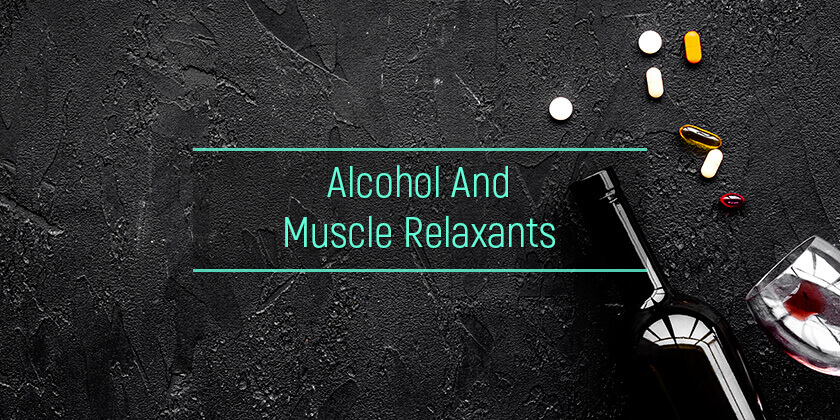
When facing the risks and potential dangers associated with mixing alcohol and muscle relaxers, it is crucial to seek professional help. Consulting with a healthcare provider or addiction specialist can provide guidance and support in managing the effects of these substances. They can offer personalized treatment plans, advice on medication management, and connect you with resources for addiction and substance abuse support. Remember, reaching out for professional help is a proactive step towards ensuring your safety and well-being in dealing with the complexities of alcohol and muscle relaxer interactions.
When To Seek Medical Advice
If you are experiencing any concerning symptoms or have questions about the interaction between alcohol and muscle relaxers, it is recommended to seek medical advice. It is important to consult with a healthcare provider if you notice any unusual side effects, such as dizziness, drowsiness, or difficulty breathing. Additionally, if you are having trouble managing or reducing your alcohol or muscle relaxer consumption, seeking professional help is essential. Remember, healthcare professionals can provide personalized guidance and support to ensure your safety and well-being. For any concerns or questions, reach out to your healthcare provider or addiction specialist.
Resources For Addiction And Substance Abuse Support
If you or someone you know is struggling with addiction or substance abuse, it is important to seek support from professional resources. There are various resources available to help individuals with addiction, such as rehabilitation centers, support groups, and counseling services. Organizations like Alcoholics Anonymous (AA) and Narcotics Anonymous (NA) provide a supportive community for individuals seeking recovery. Additionally, helplines and hotlines can offer immediate assistance and guidance. It is crucial to reach out and utilize these resources to receive the necessary support and treatment for addiction.
FAQ About Alcohol And Muscle Relaxers: Risks And Effects
Q: Can you drink alcohol while taking muscle relaxers?
A: It is generally advised to avoid alcohol when taking muscle relaxers as it can enhance drowsiness, dizziness, and other side effects.
Q: What are the risks of combining alcohol and muscle relaxers?
A: Combining alcohol with muscle relaxers can lead to dangerous central nervous system depression, impaired coordination, and increased risk of accidents or overdose.
Q: How does alcohol interact with muscle relaxers in the body?
A: Alcohol and muscle relaxers both act as central nervous system depressants, and when combined, they can amplify each other’s effects, leading to severe sedation and respiratory depression.
Q: What are the potential side effects of mixing alcohol with muscle relaxers?
A: Some potential side effects include extreme drowsiness, confusion, slurred speech, memory problems, slowed breathing, and increased risk of accidents or falls.
Q: Can the combination of alcohol and muscle relaxers be fatal?
A: Yes, combining alcohol and muscle relaxers can be fatal, especially in cases of overdose or when mixed with other sedatives or opioids. It is crucial to seek medical advice before consuming alcohol while taking muscle relaxers.
